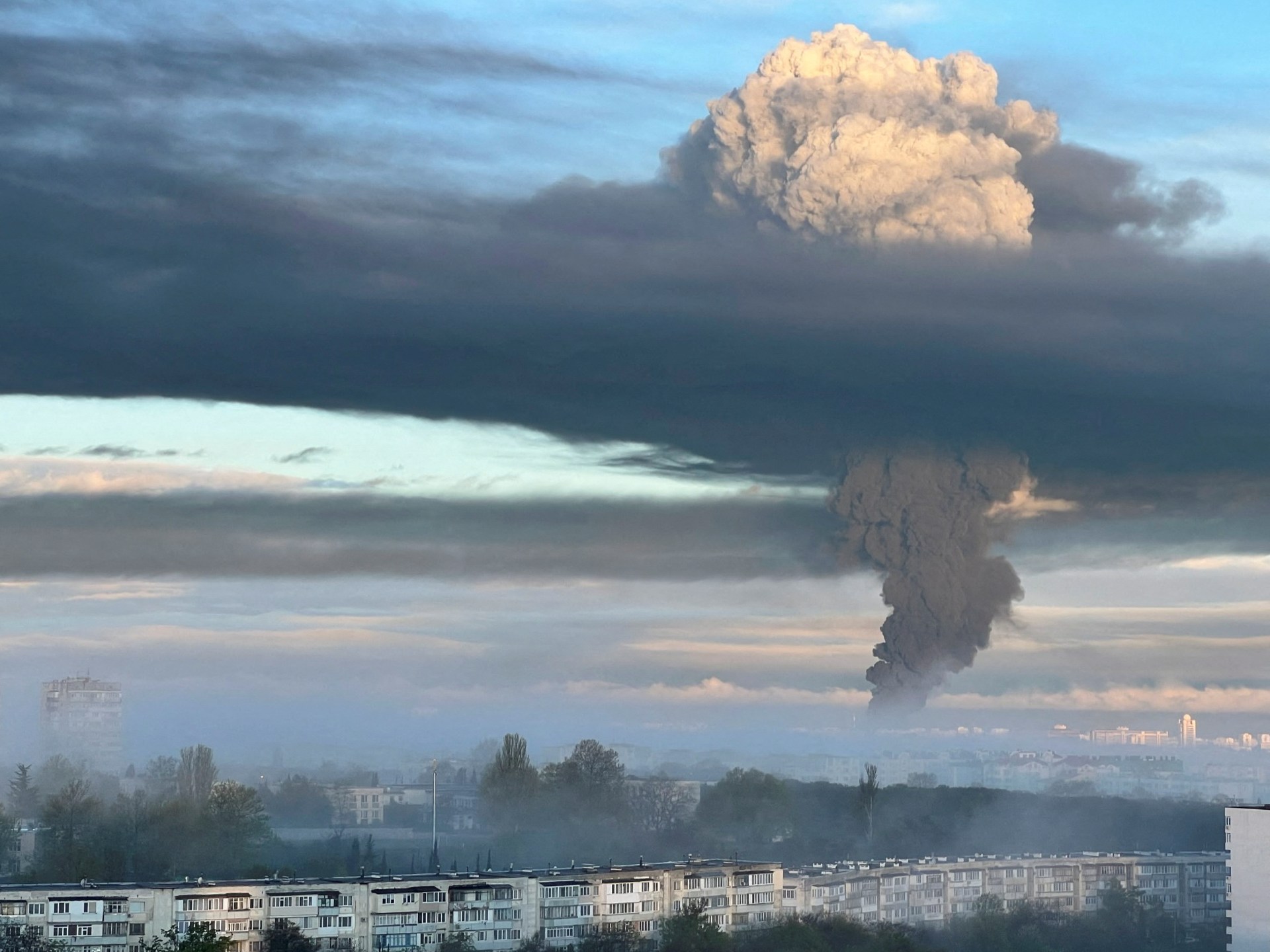German-French Iraq Plans Spark New Anger
Ahead of a key Security Council session on Iraq on Friday, Russia — which like France holds veto power on the council — joined Germany in reiterating its strong opposition to war. After talks in Berlin with German Chancellor Gerhard Schroeder, Russian President Vladimir Putin warned Washington against a unilateral attack and said he saw "no basis for the use of force at this time." As elements of the German-French plans trickled out at a security conference in Munich over the weekend, German Defense Minister Peter Struck said the initiative builds on a French proposal to triple the number of weapons inspectors. He said it would be presented in the council on Friday after chief weapons inspector Hans Blix gives a new report on Iraqi cooperation.
"We are standing shoulder to shoulder with France and we hope that this initiative will be positively received in the Security Council," Struck told Germany’s Phoenix television. According to the German news magazine Der Spiegel, the French-German proposal would also call for deploying thousands of U.N. soldiers in Iraq, reconnaissance flights and declaring all of Iraq a no-fly zone — a vigorous U.N. regime that would effectively sideline Saddam Hussein.
Increasing the number of U.N. inspectors would be "a diversion, not a solution," Secretary of State Colin Powell, in Washington, said on American television.
"The issue is not more inspectors. The issue is compliance on the part of Saddam Hussein," he said.
Powell reiterated the Bush administration’s position that time is running out for Saddam to comply or face a U.S.-led military invasion.
"It’s a plan as far as we can tell whose purpose is to block U.S. military action and not make meaningful inspections — but we don’t know," said Arizona Senator John McCain, who attended the Munich conference that ended Sunday.
And even as German officials revealed the emerging initiative, French officials insisted there was "no secret plan" and said they could not confirm details — presenting an appearance of disarray in the recently reinvigorated French-German alliance.
U.S. officials were miffed that neither country’s defense minister was prepared to brief Defense Secretary Donald Rumsfeld on details of the plan on the sidelines of the Munich conference. "Rumsfeld was here for 24 hours meeting with German and French officials and no one told him anything. That was not an auspicious start," a senior U.S. official in Munich said on condition of anonymity.
The United States is also in a standoff with European opponents of war over NATO plans to prepare to defend Turkey against the threat of Iraqi missile attacks.
Belgium has joined France and Germany in blocking the preparations. Rumsfeld called their stance "inexcusable," saying NATO nations have a commitment to defend Turkey. "Those preventing the alliance from taking even minimum measures to prepare to do so risk undermining the credibility of the NATO alliance," he said.
At issue is allowing NATO to start planning to send to Turkey AWACS early warning planes, Patriot anti-missile batteries and units specialized in tackling germ warfare or poison gas attacks. Turkey is the only NATO member to border Iraq and is a likely launch pad for U.S. strikes on its southern neighbor. NATO Secretary General Lord Robertson last week launched a so-called "silence procedure" under which the planning would go ahead automatically unless any of the allies raised a formal objection by 10:00 Monday. Under intense U.S. pressure, Struck indicated Saturday that Germany may lift its objections to the deployment. But France and Belgium nevertheless appeared on course to block the automatic start of military preparations. In another last-ditch peace effort, the Vatican said Pope John Paul II will dispatch an envoy to Iraq to emphasize his plea for peace and to encourage Iraqi authorities to cooperate with the United Nations. Cardinal Roger Etchegaray will leave Rome on Monday for Baghdad carrying a personal message from the pontiff, the Vatican said. Details of whom the papal envoy would meet weren’t released. The Vatican has been outspoken in its opposition to a new Iraq conflict, with top clerics saying a preventive strike would have no legal or moral justification. The pontiff himself has previously said war against Iraq would be a "defeat for humanity."



